Best Dog Food for Cancer
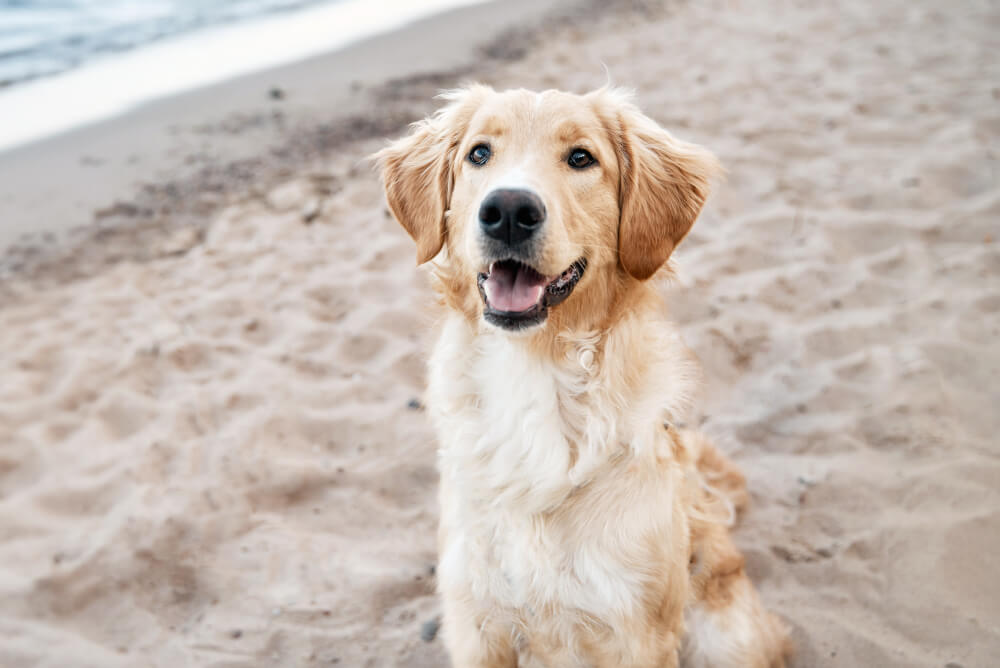
DogFoodAdvisor is reader supported See how
All reviews are 100% impartial but if you buy using links on this page, we may earn a referral fee.
What’s the best dog food for dogs with cancer?
When it comes to feeding dogs with cancer, it’s essential to consult with your veterinarian, as they can provide personalized recommendations based on your dog’s specific condition and needs.
However, here are some general guidelines regarding a diet for dogs with cancer:
Feed your dog a high-quality, nutritionally balanced food that provides all the necessary nutrients. Look for recipes which contain real, whole-food ingredients and minimal artificial additives.
Protein is crucial for supporting your dog’s immune system and maintaining muscle mass. Choose a dog food that contains high-quality sources of protein, such as chicken, turkey, fish, or lamb.
Include healthy fats in your dog’s diet, such as omega-3 fatty acids found in fish oil or flaxseed oil. These fats may have anti-inflammatory properties and support overall health.
Antioxidants, such as vitamins A, C, and E, can help support the immune system and protect cells from damage. Foods rich in antioxidants include berries, spinach, carrots, and sweet potatoes.
Some veterinarians recommend reducing the amount of carbohydrates in the diet, as cancer cells tend to utilize glucose for energy. However, it’s important to find the right balance, as dogs still require some carbohydrates for energy.
Opt for easily digestible foods to ensure that your dog’s digestive system can absorb and utilize nutrients efficiently. This may involve avoiding ingredients that commonly cause digestive issues for dogs, such as wheat, soy, and corn.
Below you can read our recommendations of the best foods for dogs with cancer.
You’ll also learn the answer to each of the most frequently asked questions we get about dogs with cancer.
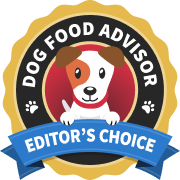
Best Dog Food for Cancer April 2024
Here are The Dog Food Advisor's best dog food brands for cancer for April 2024.
-
1. Freshpet
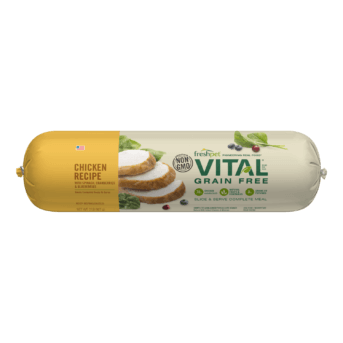
Grain-Free Salmon & Ocean Whitefish Recipe is one of 8 refrigerated rolls recipes included in our review of the Freshpet Vital product line.
Freshpet Vital Grain Free Salmon and Ocean Whitefish Recipe derives the bulk of its protein from salmon. Dry matter label analysis reveals the recipe contains 40.9% protein, 15.9% fat and 35.2% estimated carbs… resulting in a fat-to-protein ratio of about 39%.
Read our review of the full Freshpet Vital Grain Free Dog Food (Refrigerated Rolls) range here
Main Ingredients Ocean whitefish, fish broth, salmon, spinach, cranberries Type Grain-free Protein Percentage 40.9 AAFCO Standards All Life Stages Best For Puppies and Dogs Sample buyer review...
Read more buyer reviews at FreshPet.com"My dog had become a little finicky about eating. She doesn't particularly love kibbles, so I now accompany her kibbles with Freshpet Vital. She loves this food, and she gobbles the Freshpet and throws the kibbles on the floor to nibble on later. Ha! This has been a lifesaver for us. I feed her twice a day, and she can't wait for her meal to be served now. Thank you, Freshpet!"
-
2. Open Farm
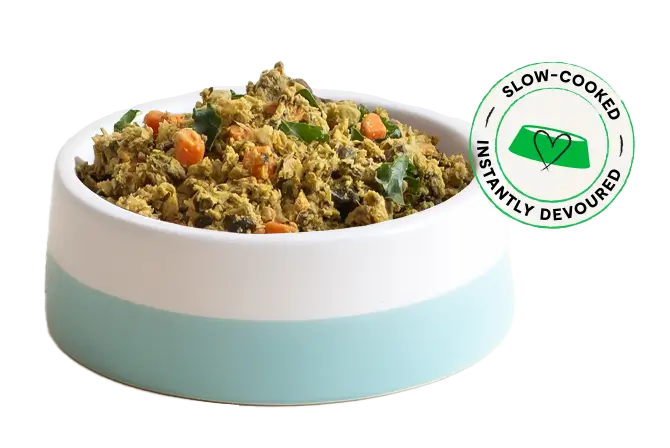
Homestead Turkey is one of 5 wet recipes included in our review of the Open Farm Gently Cooked product line.
Open Farm Gently Cooked Homestead Turkey derives the bulk of its meat protein from beef. Dry matter label analysis reveals the recipe contains 37.5% protein, 29.2% fat and 25.3% estimated carbs… resulting in a fat-to-protein ratio of about 78%.
Read our review of the full Open Farm Gently Cooked Dog Food (Fresh) range here
Main Ingredients Humanely raised turkey, carrots, kale, apples, butternut squash Texture Wet Type Grain-free Protein Percentage 37.5 AAFCO Standards Maintenance Best For Dogs Sample buyer review...
Read more buyer reviews at OpenFarmPet.com"My dog loves the gently cooked turkey recipe. We mix it with some of the ancient grain dry food and some Open Farm bone broth. We tried many foods, but the ingredients in Open Farm seem superior to the rest."
-
3. Nulo
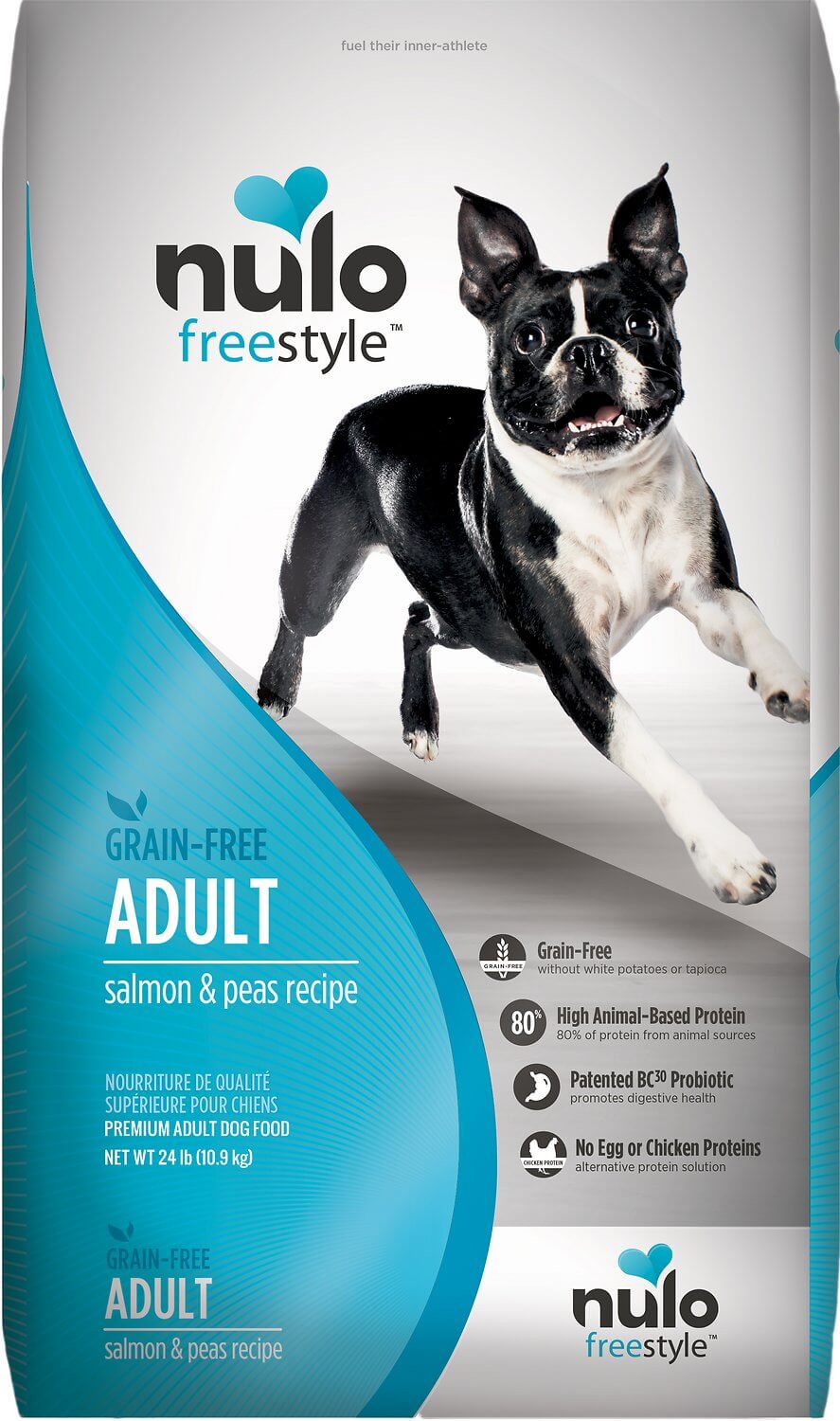
Freestyle Freeze-Dried Raw Beef Recipe is one of 5 raw recipes included in our review of the Nulo Freestyle product line.
Nulo Freestyle Freeze-Dried Raw Beef Recipe derives the bulk of its meat protein from beef. Dry matter label analysis reveals the recipe contains 44.2% protein, 29.5% fat and 18.3% estimated carbs… resulting in a fat-to-protein ratio of about 67%.
Read our review of the full Nulo FreeStyle Dog Food (Dry) range here
Main Ingredients Beef, beef heart, beef liver, beef kidneys, ground beef bone Type Grain-free, raw Protein Percentage 44.2 AAFCO Standards All Life Stages Best For Puppies and Dogs Sample buyer review...
Read more buyer reviews at Nulo.com"I'm just a puppy, but my mom bought these to go on my kibble. I get so excited when I smell them that I jump in CIRCLES. They are soooooo yummy. I look for them EVERYWHERE...it's my FAVORITE time of day when the bag comes out!"
-
4. Stella & Chewy's
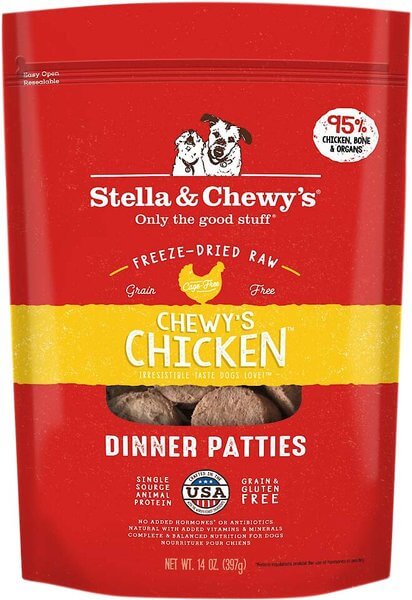
Stella & Chewy’s Chicken Freeze-Dried Dinner is one of 13 raw recipes included in our review of the Stella & Chewy’s Freeze-Dried Raw product line.
Stella & Chewy’s Chicken Freeze-Dried Raw Dinner Patties derives the bulk of its meat protein from chicken. Dry matter label analysis reveals the recipe contains 50.5% protein, 29.5% fat and 12% estimated carbs… resulting in a fat-to-protein ratio of about 58%.
Main Ingredients Chicken with ground bone, chicken liver, chicken gizzard, pumpkin seeds, organic cranberries Type Grain-free, raw Protein Percentage 50.5 AAFCO Standards All Life Stages Best For Puppies and Dogs Sample buyer review...
Read more buyer reviews at StellaAndChewys.com"I started using Stella & Chewy's freeze-dried food when I brought my baby Willie home four years ago. The chicken patties were an instant hit with him and he still loves them today. The only difference is he now has a little bro to share with. Skeeter came from a shelter and we were concerned the freeze-dried patties would be too rich for him. No way! He loves them too!"
-
5. Vital Essentials
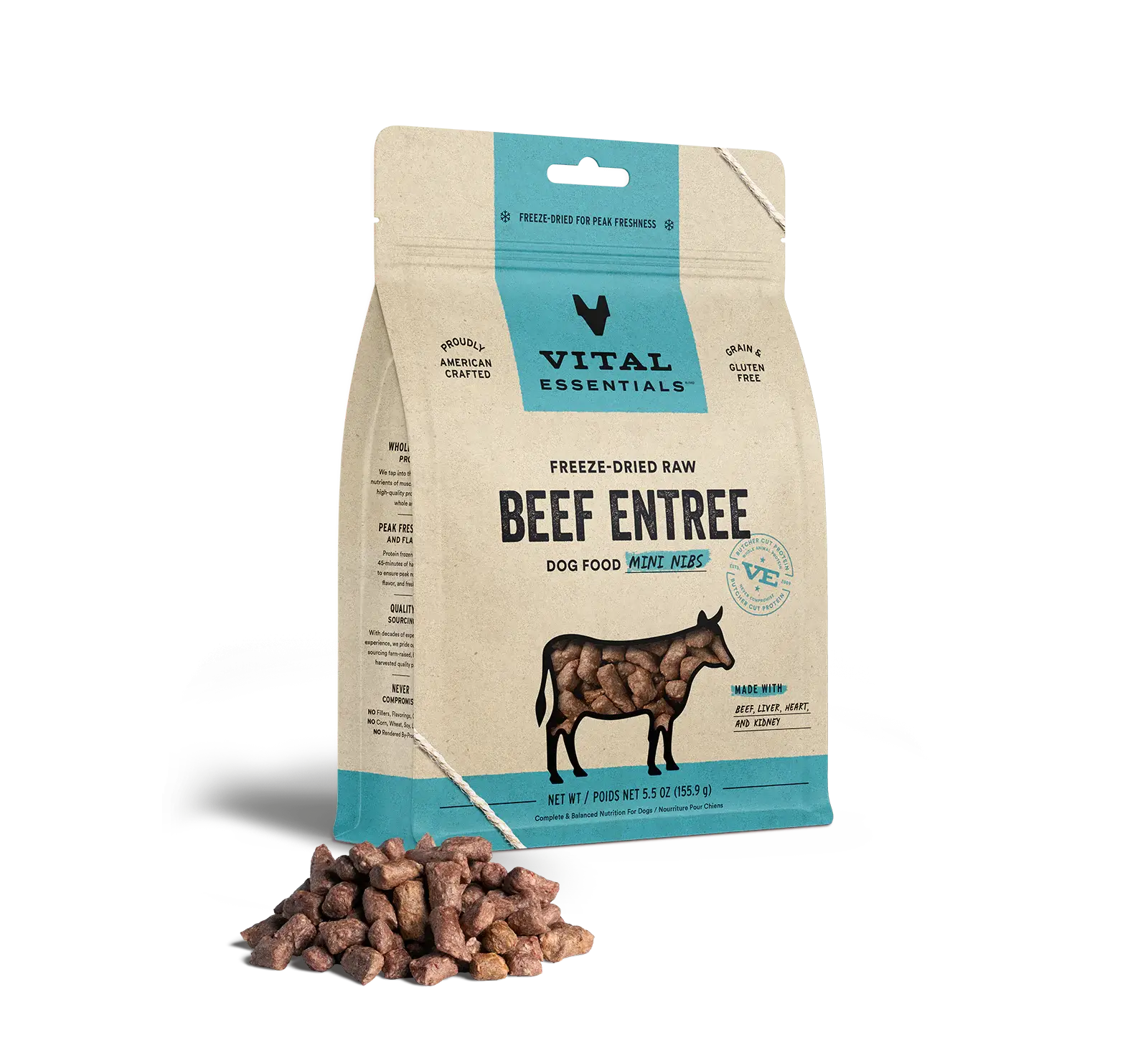
Beef Dinner Patties is one of 19 raw recipes included in our review of the Vital Essentials Freeze-Dried Raw product line.
Vital Essentials Freeze-Dried Raw Beef Dinner Patties derives the bulk of its meat protein from beef. Dry matter label analysis reveals the recipe contains 43.5% protein, 34.8% fat and 13.7% estimated carbs… resulting in a fat-to-protein ratio of about 80%.
Read our review of the full Vital Essentials Dog Food (Freeze-Dried) range here
Main Ingredients Beef, beef liver, beef heart, beef lung, beef kidney Type Grain-free, raw Protein Percentage 43.5 AAFCO Standards All Life Stages Best For Puppies and Dogs Sample buyer review...
Read more buyer reviews at VitalEssentialsRaw.com"My fussy Vizsla, Elke loves her Vital Essentials. Always a treat to see her go to her bowl and clean it up. The bonus is VE has such quality, healthy ingredients. The convenience of the freeze dried makes it the perfect meal when we travel! Love it!"
-
6. Halo Pets
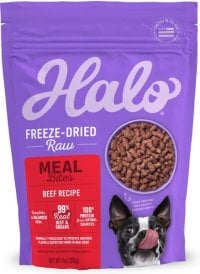
Meal Bites Whitefish Recipe is one of 4 raw recipes included in our review of the Halo Freeze-Dried Raw Meal Bites product line.
Halo Freeze-Dried Raw Meal Bites Whitefish Recipe derives the bulk of its protein from fish. Dry matter label analysis reveals the recipe contains 63% protein, 21.7% fat and 7.2% estimated carbs… resulting in a fat-to-protein ratio of about 34%.
Read our review of the full Halo Freeze-Dried Raw Meal Bites Dog Food (Freeze-Dried) range here
Main Ingredients Whitefish, herring oil (source of omega 3 fatty acids), mixed tocopherols (preservative), vitamin E supplement, ascorbic acid (source of vitamin C) Type Grain-free, raw Protein Percentage 63 AAFCO Standards Maintenance Best For Dogs Sample buyer review...
Read more buyer reviews at HaloPets.com"My picky lab Pilot loves TruDog treats and food! We have used this for a few years now and he is doing great at almost 10 yo! His weight is steady and his energy levels are great! Thank you so much for providing such a trusted product!"
More Top Picks
To view more top dog foods by category… click the link below that best meets your personal feeding needs.
Frequently Asked Questions
What to do if your dog has cancer?
If your dog has been diagnosed with cancer, it can be a difficult and emotional time, but here are some steps you can take to help your dog:
Seek guidance from a veterinarian experienced in oncology. They will provide a detailed diagnosis, explain the type and stage of cancer, discuss treatment options, and provide information about the expected prognosis.
Educate yourself about the specific type of cancer your dog has. Understand the behavior of the cancer, available treatment options, potential side effects, and success rates. This will help you make informed decisions about your dog’s care.
Depending on the type and stage of cancer, you may want to consult with a veterinary oncologist. These specialists have advanced training and expertise in diagnosing and treating cancer in animals.
Work closely with your veterinarian to determine the most appropriate treatment plan for your dog. Treatment options may include surgery, chemotherapy, radiation therapy, immunotherapy, or a combination of these. Consider the potential benefits, risks, and quality of life implications for your dog.
During cancer treatment, your dog may require additional support. Follow your veterinarian’s instructions regarding pain management, dietary adjustments, and any other supportive therapies. Monitor your dog closely for any changes in appetite, behavior, or overall well-being and communicate with your vet regularly.
Create a calm and comfortable environment for your dog. Minimize stress and provide a quiet space where they can rest and recover. Ensure they have access to fresh water, a comfortable bed, and a proper diet.
Prioritize your dog’s quality of life throughout their cancer journey. Consider their comfort, happiness, and overall well-being. Engage in activities that they enjoy, provide mental stimulation, and spend quality time together.
Remember, every case of cancer is unique, and there is no one-size-fits-all approach. Your veterinarian will guide you through the process and help you make the best decisions for your dog. Focus on providing love, care, and support to your furry companion throughout their cancer journey.
What are the treatment options for a dog with cancer?
The treatment options for a dog with cancer can vary depending on factors such as the type of cancer, its stage, the overall health of the dog, and the preferences of the owner. Here are some common treatment options:
Surgery is often used to remove tumors or masses. It can be curative if the cancer is localized and hasn’t spread to other parts of the body. In some cases, surgery may be combined with other treatments for more effective outcomes.
Chemotherapy involves the use of drugs that target and kill cancer cells. It can be administered orally, intravenously, or in other forms. Chemotherapy is commonly used for cancers that have spread or are difficult to remove surgically. The goal is to slow down the growth of cancer, reduce symptoms, or achieve remission.
Radiation therapy uses high-energy radiation to kill cancer cells and shrink tumors. It is typically delivered externally using a machine or internally through implanted radiation sources. Radiation therapy is often used for localized tumors or to provide palliative care for pain relief or improved quality of life.
Immunotherapy aims to stimulate the immune system to recognize and attack cancer cells. It can involve the use of vaccines, immune modulators, or targeted therapies. Immunotherapy is a rapidly evolving field and may be recommended for specific types of cancers.
In cases where a cure is not feasible or appropriate, palliative care focuses on managing symptoms, improving comfort, and enhancing the quality of life for the dog. This may involve pain management, nutritional support, and other supportive therapies.
Some types of cancer may have specific targeted therapies available. These therapies are designed to interfere with specific molecular targets involved in the growth and spread of cancer cells. They can be used in conjunction with other treatments or as stand-alone therapies.
It’s important to note that treatment options and their effectiveness can vary depending on the specific cancer type and individual factors. Your veterinarian, along with veterinary oncologists or specialists, can provide detailed information about the most appropriate treatment options for your dog’s specific situation.
Additionally, complementary and alternative therapies, such as acupuncture, herbal medicine, or dietary supplements, may be considered as adjuncts to conventional treatment. It’s important to consult with your veterinarian before incorporating any complementary therapies to ensure they are safe and appropriate for your dog.
Ultimately, the treatment plan will be tailored to your dog’s specific needs and designed to achieve the best possible outcome, taking into account factors such as the type and stage of cancer, overall health, and quality of life.
What is the expected prognosis of a dog with cancer?
The prognosis for a dog with cancer can vary significantly depending on various factors, including the type and stage of cancer, the overall health of the dog, the treatment options available, and the response to treatment. It’s important to remember that every case is unique, and individual outcomes can differ.
Some cancers have a more favorable prognosis, with a higher likelihood of successful treatment and longer survival times. Others may have a more guarded prognosis, meaning the prognosis is uncertain or the expected outcome is less favorable.
In general, early detection and treatment tend to improve the prognosis. Cancers that are caught in the early stages and can be completely removed through surgery may have a more positive outlook. On the other hand, advanced-stage cancers or cancers that have already spread to other parts of the body (metastasized) often have a less favorable prognosis.
It’s important to discuss the expected prognosis with your veterinarian or a veterinary oncologist who can provide specific information based on your dog’s diagnosis. They will consider the type of cancer, its stage, the treatment options available, and the response to treatment to give you a more accurate assessment of the prognosis.
Keep in mind that prognoses are estimates based on available knowledge and statistical data, but they cannot predict individual outcomes with certainty. Some dogs may respond exceptionally well to treatment and have extended survival times, while others may experience more challenges. Each dog and their response to treatment is unique.
It’s crucial to have open and honest communication with your veterinarian to understand your dog’s prognosis, potential treatment options, and the potential risks and benefits involved. They can guide you through the decision-making process and provide ongoing support throughout your dog’s cancer journey.
What are the potential side effects of treatment for dogs with cancer?
The potential side effects of cancer treatment in dogs can vary depending on the specific treatment modality used. Here are some common side effects associated with different treatment options:r
After surgery to remove tumors or masses, dogs may experience pain, swelling, and wound healing complications. Some surgical procedures may require restricted activity or the use of protective devices, such as cones, to prevent licking or chewing at the incision site.
Chemotherapy drugs target rapidly dividing cells, including cancer cells, but they can also affect normal cells in the body. Common side effects of chemotherapy in dogs may include:
- Nausea and vomiting
- Diarrhea or constipation
- Loss of appetite
- Fatigue or lethargy
- Suppression of the immune system, which can increase the risk of infections
- Hair loss (less common in dogs compared to humans)
- Bone marrow suppression, leading to decreased red and white blood cell counts and platelets
Side effects of radiation therapy depend on the area being treated and the dose administered. Common side effects may include:
- Skin irritation or burns at the site of radiation
- Temporary or permanent hair loss in the treated area
- Fatigue or lethargy
- Changes in appetite or digestion
- Inflammation or damage to nearby tissues
Immunotherapy treatments can cause immune-related side effects, which may include:
- Allergic reactions
- Skin rashes or inflammation
- Digestive system issues, such as diarrhea or colitis
- Changes in liver or kidney function
- Thyroid or hormone-related problems
It’s important to note that not all dogs will experience these side effects, and the severity can vary. Some dogs may have minimal or no side effects, while others may experience more significant challenges. The veterinarian will closely monitor your dog during treatment and provide supportive care to manage and alleviate any side effects that may arise.
Remember to communicate with your veterinarian throughout the treatment process. They can help you understand the potential side effects, provide strategies to minimize discomfort, and adjust the treatment plan if necessary. Promptly report any concerning symptoms or changes in your dog’s behavior or health to your veterinarian for appropriate evaluation and management.






